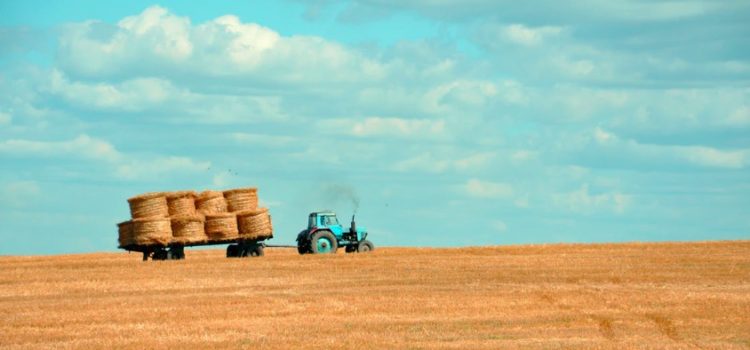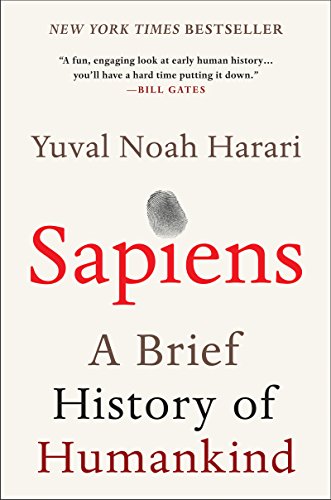

This article is an excerpt from the Shortform summary of "Sapiens: A Brief History of Humankind" by Yuval Noah Harari. Shortform has the world's best summaries of books you should be reading.
Like this article? Sign up for a free trial here .
What caused the Agricultural Revolution? How did farming come to dominate the modern era?
The Agricultural Revolution was probably caused inadvertently by the spread of wheat. Early Sapiens took advantage of the prospering of wheat to set down roots and abandon their nomadic lifestyles.
We’ll cover the causes of the Agricultural Revolution and how the “revolution” happened gradually.
What Caused the Agricultural Revolution?
About 10,000 years ago, between 9500 and 8500 BC, Sapiens started shifting from forager lifestyles to a life revolving around agriculture. This was the Agricultural Revolution. It was so successful for our species that we went from 5-8 million foragers in 10,000 BC to 250 million farmers by the first century AD.
This gradual movement started independently in the Middle East, China, and Central America, areas that had plants and animals, like wheat and sheep, that were easy to domesticate. The movement had a monumental impact on not only the way we live today but on our diet. 90% of the calories in the modern diet comes from plants domesticated by our ancestors, like wheat, rice, and potatoes.
Cause of the Agricultural Revolution: The Success of Wheat
What caused the Agricultural Revolution? Wheat played a huge role. Wheat is one of the most successful plants ever, but its success happened gradually and was probably not planned consciously by Sapiens.
About 870,000 square miles of the earth are covered by wheat. This is the area of Britain, multiplied by 10.
We like to think we’re the masters of our land, and everything that grows on it, but humans didn’t domesticate wheat. Wheat domesticated humans.
- Wheat couldn’t grow in soil with rocks and pebbles, so Sapiens had to bend over and clear the fields.
- Wheat couldn’t grow around other plants, so Sapiens had to frequently weed the ground it grew in.
- Wheat was fragile, so Sapiens had to protect it from worms, blight, rabbits, and locusts. Sapiens guarded it from other animals by building fences and physically standing there, watching over it.
- Wheat needed a lot of water, so Sapiens dug canals and dragged buckets of water back and forth from rivers and water sources.
Further, if people had a plot of land, they also had to protect that land from neighbors. Unlike foragers, when farmers didn’t get along with others in their band, it wasn’t easy to pick up and move. Farmers stayed and fought. Therefore, wheat didn’t offer a more peaceful way of life. Some studies indicate that 15% of deaths at the time were the result of human violence.
There was one benefit, however: life lived in one place, in a home and with fences, did provide more protection from wild animals and the elements.
If the Benefits Were Few, Why Agriculture?
If wheat was so difficult, why farming at all? What caused the Agricultural Revolution?
The move from foraging to agriculture wasn’t necessarily a conscious choice. Rather, it was a gradual process of small, seemingly insignificant changes that added up to a monumental revolution.
18,000 years ago, the last ice age retreated, increasing rainfall. This was great for wheat and other grains, which started to spread. Because there was more wheat, people started eating more of it, taking it back to their campsites to grind and cook. On the way to the campsite, some of the small grains were sprinkled along the path, helping the spread of wheat.
Humans burned the forests to create clearings that attracted animals. This also cleared the area of large trees and bushes that would have competed with the wheat for sunlight and water. Where wheat prospered, nomads would settle for a few weeks, enjoying the plenty. A few weeks turned into a few more, and over generations, these areas became permanent settlements.
People started storing grain for later and invented stone scythes, pestles, and mortars. Because they saw that wheat grew better when it was buried deep in the soil rather than sprinkled on top, humans began to hoe and plow the fields. Weeding, watering, and fertilizing followed. With all this time spent on tending the wheat, there was less time to hunt and gather. Sapiens had become farmers.
What caused the Agricultural Revolution? The inadvertent cultivation of wheat.
———End of Preview———

Like what you just read? Read the rest of the world's best summary of "Sapiens" at Shortform . Learn the book's critical concepts in 20 minutes or less .
Here's what you'll find in our full Sapiens summary :
- How Sapiens outlived and outlasted the 8+ other human-like species on Earth
- The 3 critical revolutions in human existence that led to our domination of the planet
- How much of what powers our world today is really just a shared mass delusion
- What the future of humanity might look like






